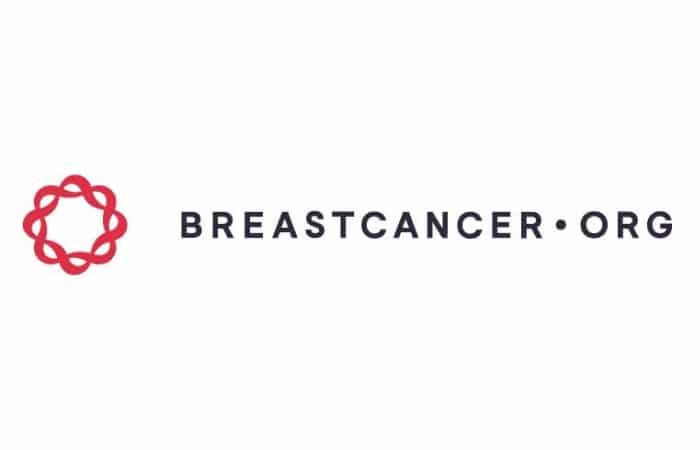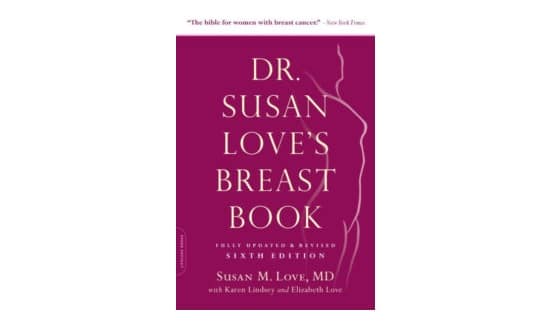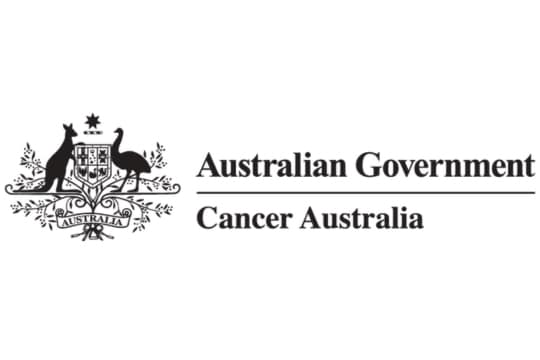Surviving and thriving with and beyond breast cancer
Whether your treatment has ended or you’re on long-term hormone or drug therapy, you may want to turn your attention to regaining your health, maintaining remission, and creating a body that is less supportive of cancer.
This may be a time when you feel anxiety around follow-up visits and testing, and perhaps fear that your cancer may recur. Taking charge of your health by blending anticancer healing practices and complementary therapies can empower you as you move in and through the challenges of living with cancer.
“A survivor is a person who lived through hardship or disaster. A thriver is more than that. It is someone who not only goes through an exceptionally positive or threatening life event, but shows subsequent growth because of the experience.”1Mangelsdorf J, Eid M. What makes a thriver? Unifying the concepts of posttraumatic and postecstatic growth. Frontiers in Psychology. 2015 Jun 23;6:813.
In addition to everything within At any time during your breast cancer experience › you may consider the practices and therapies listed here. They promote both surviving and thriving, including reducing your risk of relapse or recurrence, as you live the rest of your life.
Top practices and therapies we have reviewed for reducing risk of recurrence and improving quality of life after treatment
These practices and therapies have at least modest evidence for the medical benefits listed. We add to this list as we complete new reviews of practices and therapies.
Self-care practices
Complementary therapies
On this page
Recovering from treatment and maintaining remission
Balancing terrain
Several imbalances in your body terrainthe internal conditions of your body, including nutritional status, fitness, blood sugar balance, hormone balance, inflammation, and more can make your body more susceptible to infection, slower to heal wounds, and/or more supportive of cancer. Chronic inflammation, high blood sugar and insulin resistance, obesity, and imbalanced stress chemistry may be particularly important to balance in relation to surgery, wound healing, and reducing recurrence risk.
Find health professionals who specialize in managing body terrain ›
Post-treatment monitoring
When you have finished treatment, discuss and develop a survivorship plan with your cancer treatment team. Your survivorship plan includes instructions and a schedule for follow-up visits, plus testing and guidance on lifestyle and other self-care practices to help you recover and prevent recurrence. The type of testing and monitoring done to assess your response to treatment and pick up on recurrence depend on your specific cancer, treatment, and risk for recurrence.
You need to find a balance in the type and frequency of monitoring for breast cancer recurrence. Talk with your oncologist about your risk of recurrence and the type and frequency of monitoring best for you. Based on your risk, ask these questions:
- Have we done everything we know to do from a treatment standpoint to treat the breast cancer?
- What type and frequency of monitoring is best for me?
- What are the available monitoring tests and tools?
Valid and reliable tests to pick up on recurrence early are under development. Blood tests such as circulating tumor DNA (ctDNA) and circulating tumor cell testing (CTC) have generated a lot of excitement, but they’re not yet ready for routine clinical use. According to CancerChoices advisor and breast cancer medical advocate Gwendolyn Stritter, MD, two fairly well-validated ctDNA tests, Guardant 360 and FoundationOne Liquid, are used to monitor treatment response in metastatic breast cancer. She suspects that within the next couple of years these tests may be validated for use in the post-primary/adjuvant, NED (no evidence of disease) setting as a very early warning of impending recurrence. CancerChoices is monitoring this situation and will update this page when new developments are announced.
Meanwhile, some women with no evidence of disease but at high risk of recurrence have requested ctDNA testing, understanding that insurance is not likely to pay for the tests. Guardant 360 will accept samples only in the case of metastatic breast cancer. Foundation Medicine’s ctDNA test costs about $5800, and—except for metastatic disease—insurance usually won’t cover the costs. Fortunately, Foundation Medicine, and perhaps other companies, do not charge the patient if the test does not reveal any ctDNA. Further, Foundation Medicine and other companies offer financial aid and discount programs in some cases.

Surveillance tools currently employed with those at increased risk of recurrence are listed on BreastCancer.org’s site.
Reducing your risk of recurrence and improving quality of life after treatment
You can be active in creating a body that is less likely to support cancer recurrence. Both self-care practices and complementary therapies can provide benefit. Details of the evidence supporting the statements are in the pages available through the image links.
In addition to everything within At any time during your cancer experience ›, you may consider the practices and therapies listed here. They promote both surviving and thriving, including reducing your risk of relapse or recurrence, as you live the rest of your life.
Strong, good, or modest evidence of benefit of reducing your risk of recurrence and improving quality of life
Strong evidenceconsistent, significant effects in several large (or at least one very large) well designed clinical studies or at least two meta-analyses of clinical studies of moderate or better quality (or one large meta-analysis) finding similar results (this is the CancerChoices definition; other researchers and studies may define this differently) indicates confidence that the practice or therapy has an effect as noted. Good evidencesignificant effects in one large or several mid-sized and well-designed clinical studies (randomized controlled trials (RCTs) with an appropriate placebo or other strong comparison control or observational studies that control for confounds) (this is the CancerChoices definition; other researchers and studies may define this differently) indicates that the practice or therapy is linked to the outcomes described with reasonable certainty. Modest evidencesignificant effects in at least three small but well-designed randomized controlled trials (RCTs), or one or more well-designed, mid-sized clinical studies of reasonably good quality (RCTs or observational studies), or several small studies aggregated into a meta-analysis (this is the CancerChoices definition; other researchers and studies may define this differently) means the practice or therapy may be linked to the outcomes described, but with a lower degree of certainty.
The evidence for these effects is described in the reviews available through the image links.
Healthy lifestyle: modest evidence
Specific to breast cancer:
- Lower risk of recurrence among people with high-risk positive stage 1–3 breast cancer but otherwise healthy with the highest scores for following a healthy lifestyle regarding physical activity; body weight; eating more fruits and vegetables and less red and processed meat or sugar-sweetened beverages; and low or no smoking or use of alcohol (modest evidence)
Eating Well: good to preliminary evidence
Specific to breast cancer:
- Lower risk of breast cancer recurrence among people eating soy foods after diagnosis (good evidence)
- Lower risk of recurrence among people without hot flashes or people taking tamoxifen eating a diet combining lower amounts of fat with higher levels of fruits, vegetables, and fiber (modest evidence)
- Lower risk of breast cancer recurrence or relapse among people eating lower levels of dietary fat among specific subgroups, in some studies with higher levels of fruits, vegetables, and fiber (good evidence)
- Postmenopausal women
- Those with ER-negative cancer
- People with higher serum levels of trans-fatty acids
- Much higher risk of recurrence among postmenopausal women who are insulin-like growth factor-I (IGFI) receptor positive and who do not reduce carbohydrates after diagnosis (preliminary evidence)
- Lower incidence of recurrence among people with breast cancer, especially obese people, eating higher levels of foods containing quercetin: apples, black or green tea, onions, red grapes or wine, cherries, raspberries, citrus fruits, and broccoli
Moving More: strong to modest evidence
Find strategies for moving more in this handbook.
Specific to breast cancer:
- Better function and quality of life, and less disability among people with breast cancer participating in exercise after treatment (strong evidence)
- Slightly lower risk of recurrence among people participating in higher levels of physical exercise (modest evidence)
Cancer as a whole:
- Better strength, fitness, and quality of life among people participating in exercise after treatment (good evidence)
- Lower risk of recurrence among people participating in exercise (modest evidence)
Limit alcohol: good evidence
Specific to breast cancer:
- Higher risk of breast cancer recurrence or development of a second primary breast cancer among people drinking 3 to 4 or more alcoholic drinks per week (good evidence)
We have not yet published our Limit Alcohol handbook; this statement is from our research so far.
Manage anxiety: good evidence
Find approaches for managing anxiety in this handbook.
Specific to breast cancer:
- Higher risk of recurrence among people with breast cancer experiencing anxiety (good evidence)
Manage depression: good evidence
Find approaches for managing depression in this handbook.
Cancer as a whole:
- Higher risk of recurrence among people with depression (good evidence)
Manage your body weight: modest evidence
Find approaches for managing your body weight in this handbook.
Specific to breast cancer:
- Worse prognosis and survival among people who are obese or those who either gained or lost more than 10% of their body weight, but mostly among people diagnosed with breast cancer after menopause (modest evidence)
Fasting or calorie restriction: modest evidence
Specific to breast cancer:
- Higher risk of recurrence among nondiabetic women with early stage breast cancer fasting less than 13 hours every night (modest evidence)
Green tea or EGCG: modest evidence
Specific to breast cancer:
- Lower risk of breast cancer recurrence among people drinking green tea, with some evidence that the benefit may be strongest in earlier stages of cancer (modest evidence)
Guided imagery: modest to weak evidence
Specific to breast cancer:
- Better global symptom scores after completing cancer treatment among people with breast cancer participating in an imagery stress-reduction program (weak evidence)
- Less cognitive dysfunction after completing cancer treatment among people with breast cancer participating in an imagery-based group intervention (preliminary evidence)
Cancer as a whole:
- Better quality of life and function after completing cancer treatment among people treated with guided imagery, sometimes with other mind-body therapies (modest evidence)
Relaxation techniques: modest evidence
Cancer as a whole:
- Better quality of life after surgery among people with cancer treated with relaxation, sometimes with other mind-body therapies (modest evidence)
Support groups: modest and preliminary evidence
Specific to breast cancer:
- Greater well-being, more life purpose or satisfaction, and/or physical or psychological function among people with breast cancer participating in support groups but not a residential intervention focused on education and training (modest evidence)
- Better body image among women after primary breast cancer treatment participating in a residential support group intervention (preliminary evidence)
- Better long-term cognitive function among women participating in a residential support group intervention after primary breast cancer treatment (preliminary evidence)
Statins
People with breast cancer, including triple-negative breast cancer, treated with statins show lower risk of recurrence.
Vitamin C supplements: modest evidence
Specific to breast cancer:
- Lower risk of recurrence among people with breast cancer taking vitamin C supplements (modest evidence); also see weak evidence of higher risk of recurrence and death among people with breast cancer taking antioxidants as a whole in Safety and precautions ›
Vitamin D
Specific to breast cancer:
- People with breast cancer with low vitamin D levels have shown a higher risk of recurrence across many studies.
- People taking vitamin D supplements after a cancer diagnosis showed a lower risk of recurrence of ER positive but not ER negative breast cancer across several studies.
Preliminary or weak evidence of benefit for reducing risk of recurrence and improving quality of life
Preliminary evidencesignificant effects in small or poorly designed clinical studies OR conflicting results in adequate studies but a preponderance of evidence of an effect (this is the CancerChoices definition; other researchers and studies may define this differently) means the practice or therapy may be linked to the outcomes described, although substantial uncertainty remains. Weak evidenceone or more case studies, supported by animal evidence OR small treatment effects of limited clinical significance OR studies with no controls OR weak trends of effects (this is the CancerChoices definition; other researchers and studies may define this differently) may mean that the effects are small or that a high degree of uncertainty remains about the links between the practice or therapy and the outcomes described.
No evidence of an effect on reducing risk of recurrence and improving quality of life
- Metformin did not show an effect on cancer recurrence among diabetic people with breast cancer as a whole or triple-negative cancer across many studies, but one large study found lower risk of recurrence of hormone-receptor positive breast cancer among diabetic people treated with metformin. Metformin did not show evidence of an effect on risk of breast cancer recurrence among nondiabetic people in one study.
No evidence of lower risk of recurrence of cancer as a whole among people treated with mistletoe in a combined analysis of studies
Further therapies that may reduce risk of recurrence
These therapies are reported to reduce risk of recurrence. We have not fully assessed the evidence, although we provide preliminary reviews as linked.
Bisphosphonates, including clodronate and zoledronic acid
Indole-3-carbinol (I3C)
Lutein
Managing fear of cancer recurrence
Acceptance and commitment therapy (ACT) reduced fear of recurrence among breast cancer survivors better than survivorship education or a 30‐minute group coaching session with survivorship readings.2Johns SA, Stutz PV et al. Acceptance and commitment therapy for breast cancer survivors with fear of cancer recurrence: a 3-arm pilot randomized controlled trial. Cancer. 2020;126(1):211–218.

The Association for Contextual Behavioral Science site includes a link to find an Acceptance and Commitment Therapy (ACT) therapist.
Improving quality of life
Good or modest evidence of benefit for improving quality of life after treatment
Moving More: good evidence
Find strategies for moving more in this handbook.
Cancer as a whole:
- Better strength, fitness, and quality of life among people participating in exercise after treatment (good evidence)
Guided imagery: modest and preliminary evidence
Cancer as a whole:
- Better quality of life and function after completing cancer treatment among people treated with guided imagery, sometimes with other mind-body therapies (modest evidence)
- Less cognitive dysfunction after completing cancer treatment among people with breast cancer participating in an imagery-based group intervention (preliminary evidence)
Relaxation techniques: modest evidence
Cancer as a whole:
- Better quality of life after surgery among people with cancer treated with relaxation, sometimes with other mind-body therapies (modest evidence)
Preliminary or weak evidence of benefit for improving quality of life after treatment
Breast cancer and pregnancy
Breast cancer’s impact on pregnancy
Breast cancer survivors of childbearing age are less likely than the general public to become pregnant and may face a higher risk of some complications, such as preterm labor. However, most survivors who do become pregnant deliver healthy babies.3The ASCO Post Staff. SABCS 2020: meta-analysis of pregnancy outcomes in breast cancer survivors. The ASCO Post December 23, 2020. Viewed February 5, 2021; Blondeaux E, Perachino M et al. Abstract GS3-09: Chances of pregnancy after breast cancer, reproductive and disease outcomes: a systematic review and meta-analysis. 2020 San Antonio Breast Cancer Symposium®. Publication Number: GS3-09. Viewed February 5, 2021.
Pregnancy’s impact on cancer outcomes
How integrative experts approach survivorship
Clinical practice guidelines
Physical activity, including aerobic exercise, is recommended to improve health-related quality of life and physical function; aerobic exercise is also recommended to reduce side effects:
Anxiety
Depressive symptoms
Fatigue
Sleep disruption
For bone health, combined moderate-vigorous intensity resistance plus high-impact training is recommended.
For lymphedema, a general progressive program focused on large muscle groups is recommended.
NCCN Guidelines for Patients®: Survivorship Care for Healthy Living, 2020 ›
In addition to the recommendations listed just above, these are for healthy living in general:
Get enough sleep
See your primary care provider on a regular basis
Follow health guidelines as appropriate
Do not take supplements unless your health provider prescribes them.
Do not stop eating healthful foods because you take supplements
These guidelines make recommendations regarding side effects and symptoms common among people with cancer. Specific recommendations are listed in handbooks: Managing Symptoms and Side Effects ›
The full text is available online free of charge.
This guideline gives a strong recommendation for physical activity for improving quality of life: Regular physical activities can play many positive roles in cancer care for breast cancer survivors after therapy.
Yoga may be offered to patients experiencing aromatase inhibitor-related joint pain in breast cancer.
Hatha yoga may be offered to patients experiencing pain after treatment for breast or head and neck cancers.
Acupuncture should be offered to patients experiencing aromatase inhibitor-related joint pain in breast cancer.
Massage may be offered to patients experiencing chronic pain following breast cancer treatment.
Published programs and approaches
Lise Alschuler, ND, FABNO, and Karolyn Gazella
Alschuler LN, Gazella KA. The Definitive Guide to Thriving after Cancer: A Five-Step Integrative Plan to Reduce the Risk of Recurrence and Build Lifelong Health. Berkeley, California: Ten Speed Press. 2013.
Chapters 1-5 list five key body pathways to target to make your body inhospitable to cancer.
Keith Block, MD
Block KI. Life over Cancer: The Block Center Program for Integrative Cancer Care. New York: Bantam Dell. 2009.
In his book, Keith Block, MD, lists glycemia, stress chemistry/biorhythms and inflammation as terrain factors common in breast cancer. Compromised immunity such as from chemotherapy, surgery, anesthesia or opioid use may also increase the risk for infection and recovery. Approaches to address these factors involve healthy lifestyle practices, such as the 7 Lifestyle Practices.
You can learn more about Dr. Block’s integrative program to address these terrain factors in his book:
- Chapter 15, Inflammation: Overcoming cancer’s fiery side
- Chapter 16, Immune Surveillance: Mounting the immune barricades
- Chapter 18, Glycemia: Breaking cancer’s sugar addiction
Gerald M. Lemole, MD; Pallav K. Mehta, MD; and Dwight L. McKee, MD
Lemole GM, Mehta PK, McKee DL. After Cancer Care: The Definitive Self-Care Guide to Getting and Staying Well for Patients with Cancer. New York, New York: Rodale, Inc. 2015.
These doctors present easy-to-incorporate lifestyle changes to help you “turn on” hundreds of genes that fight cancer, and “turn off” the ones that encourage cancer, while recommending lifestyle approaches to address each type.
Barbara MacDonald, ND, LAc
MacDonald B. The Breast Cancer Companion—A Complementary Care Manual: Third Edition. Self-published. 2016.
Naturopathic physician Barbara MacDonald provides information about breast cancer, its conventional treatment, and natural approaches to enhancing treatment, managing side effects, reducing risk of recurrence, and healthy living after cancer treatment is completed.
Chapter 9 discusses advanced breast cancer.
Gurdev Parmar, ND, FABNO, and Tina Kaczor, ND, FABNO
Parmar G, Kaczor T. Textbook of Naturopathic Oncology: A Desktop Guide of Integrative Cancer Care. 1st edition. Medicatrix Holdings Ltd. 2020.
This book provides information on the treatment of 24 cancers, plus the most effective treatments of the most common symptoms affecting cancer patients while they undergo chemotherapy, radiotherapy, or surgery.
Helpful links
Living well with metastatic breast cancer
The closing keynote at Living Beyond Breast Cancer’s 2023 Conference on Metastatic Breast Cancer
Play video
Cava E, Marzullo P et al. Breast cancer diet “BCD”: a review of healthy dietary patterns to prevent breast cancer recurrence and reduce mortality. Nutrients. 2022 Jan 21;14(3):476.
Standish LJ, Sweet E et al. Recurrence of breast cancer after primary treatment: a matched comparison study of disease-free survival in women who do and do not receive adjunctive naturopathic oncology care. Integrative Cancer Therapies. 2021 Jan-Dec;20:15347354211058404.
Learn more
References



